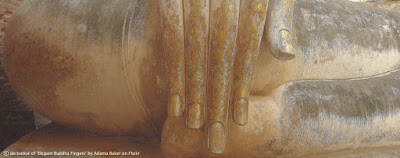STEVE SANDO,
culinary entrepreneur was born on this date; Actually this is just a
guess because no record of his actual birthday has been found, yet. So I
will assume someone who, in a few short years, has taken the lowly bean
from a neglected legume to superstar-status ingredient has a Taurean
epicurean nature and was born in May.
Sando’s company,
Rancho Gordo, grows, imports, and promotes heirloom and heritage
varieties while working directly with consumers and chefs like Thomas
Keller, Deborah Madison, Paula Wolfert, and David Kinch. Thomas Keller
discovered Sando and serves his beans at his world-renowned French
Laundry in Napa.
Sando's seed
saving, bean production, and marketing efforts provide professional and
home chefs with heirloom beans that would otherwise have been lost to
history. The beans, along with corn, chiles, and tomatoes, have become
key ingredients in the new American food revolution centered in Sando’s
native San Francisco Bay Area, as well as hot sauces and various cooking
tools and utensils.
Sando and Rancho Gordo were named number two on Saveur Magazine’s “The Saveur 100 list for 2008.” Bon Appetit magazine declared Sando one of the Hot 10 in the food world of 2009. Food + Wine magazine placed Steve “at the forefront of the current seed-saving movement.” Steve’s previous book, with Vanessa Barrington, was Heirloom Beans (Chronicle, 2008).
Steve Sando came to agriculture not from the 4H club but from the grocery store. As a
frustrated home cook, he decided to grow the ingredients he wanted in his kitchen. At the forefront of neglected ingredients were beans.
Although they are an indigenous product of the Americas, the only beans available commercially to most home cooks were pintos, navies, and kidneys. Discovering heirloom beans to be as rich and varied as heirloom tomatoes, Sando almost single-handedly created the market for these unique and worthwhile legumes. He now grows more than twenty-five
varieties in California and works with small indigenous farmers in
Mexico to import their heirloom beans for the U.S. market. He lives in
Napa and travels frequently throughout the Americas collecting beans,
friends, and adventures. His discovery and revivifying of old ways is deeply consistent with the archetypal "cultural interpreter" and
"culture saver" of same-sex people.
Sando is a former web designer, Jazz radio disc jockey, and wholesaler of clothing who now runs Rancho Gordo. After burning out in his former career, Sando
decided to grow heirloom tomatoes, despite having no experience in
agriculture. When another farmer asked for help marketing beans, he
decided to grow beans instead; Sando gathered bean seeds from Seed
Savers Exchange, and found new varieties of beans in Oaxaca, Mexico.
Bean production
under Rancho Gordo rose from 300 pounds (140 kg) in 2001 to 150,000
pounds (68,000 kg) in 2007, and to 250,000 pounds (110,000 kg) in
2008. Beans and other products are sourced from local growers in
California's Central Valley, Oregon, and Washington, as well as Mexico,
Peru, Poland, and Bolivia. Most of the dried beans produced are sold in specially labeled packages through Rancho Gordo's website, at the company's store in Napa, or directly at farmer's markets.
Sando recently made the decision to cut ties with shipping provider FedEx, due to its support of the National Rifle Association. He says that in 2017 his business spent more than $500,000 on shipping with the company but will now find another carrier.







